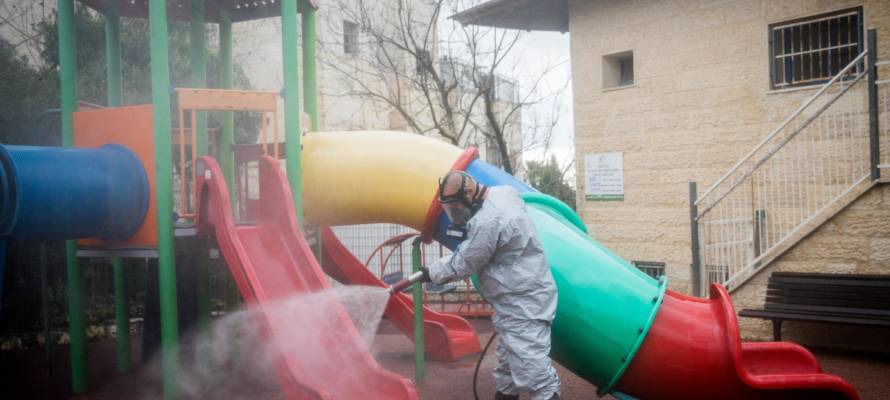While the small, mostly-religious town of Telzstone was badly hit by the virus, the steps taken to thwart contagion led to no new infections in the past week.
By Benjamin Kerstein, The Algemeiner
As Israel remains under lockdown and the coronavirus continues to spread, one small community appears to have done the impossible and stopped the spread of the virus, the Globes news site reported.
The small, mostly-religious town of Kiryat Yearim, also known as Telzstone, near Jerusalem, was initially badly hit by the virus. Shortly after a single patient from abroad spread the virus at a Purim party, an estimated one-third of the town’s residents were exposed to the disease and subsequently quarantined.
The town’s Local Council head Yitzhak Ravitz said, “We went down to 150 people in isolation today, compared with 2,000 before. A large proportion of the 30 people originally infected have recovered, and everyone who was hospitalized has been released, thank God.”
He explained that the town succeeded in arresting the virus by adopting draconian, but necessary, isolation measures.
“When isolation is observed with no compromises or cutting corners, it works,” he said. “We maintain our distance. We took aggressive action, far beyond what the government ordered.”
“For example, I closed down the grocery stores almost completely,” he explained. “Anyone going there left a list, or called a special center we opened, and local council workers prepared the delivery. The phone line was open 24 hours a day.”
The town also shut down all religious institutions and banned gatherings in public places.
“The town rabbi, who was not obligated to go into isolation, did so anyway as a personal example, and issued binding rabbinical rulings that all the requirements had to be obeyed, including the extra-strict ones issued by the local council,” said Ravitz. “The public obeyed the instructions completely.”
The Local Council head addressed a controversial issue in Israel at the moment: the fact that the spread of the virus in the Haredi community is much more severe than the population at large, which has led to criticism of the community and particularly its leaders for not obeying government-mandated restrictions.
Ravitz said the Haredim in his community were not different from others, but Kiryat Yearim was an exception in that the local government took strong and immediate action, including ensuring food supply, aiding large families stuck at home and setting up a dedicated phone line available for anyone with questions or in distress.
“Don’t compromise,” he urged. “Make the hard and unpopular decisions. It goes against the basic instinct of elected public officials, who appease the voters who elect them. When I was exposed to this, I realized that we had to do everything to save lives; that’s the most important thing.”
“’Be a step ahead of the Ministry of Health,” he advised. “Find out in advance whether someone is sick, where he or she went, and isolate anyone who was in contact with him or her, even before the Ministry of Health does it.”
“Had we not taken these measures, who knows where we would be today,” Ravitz added.
